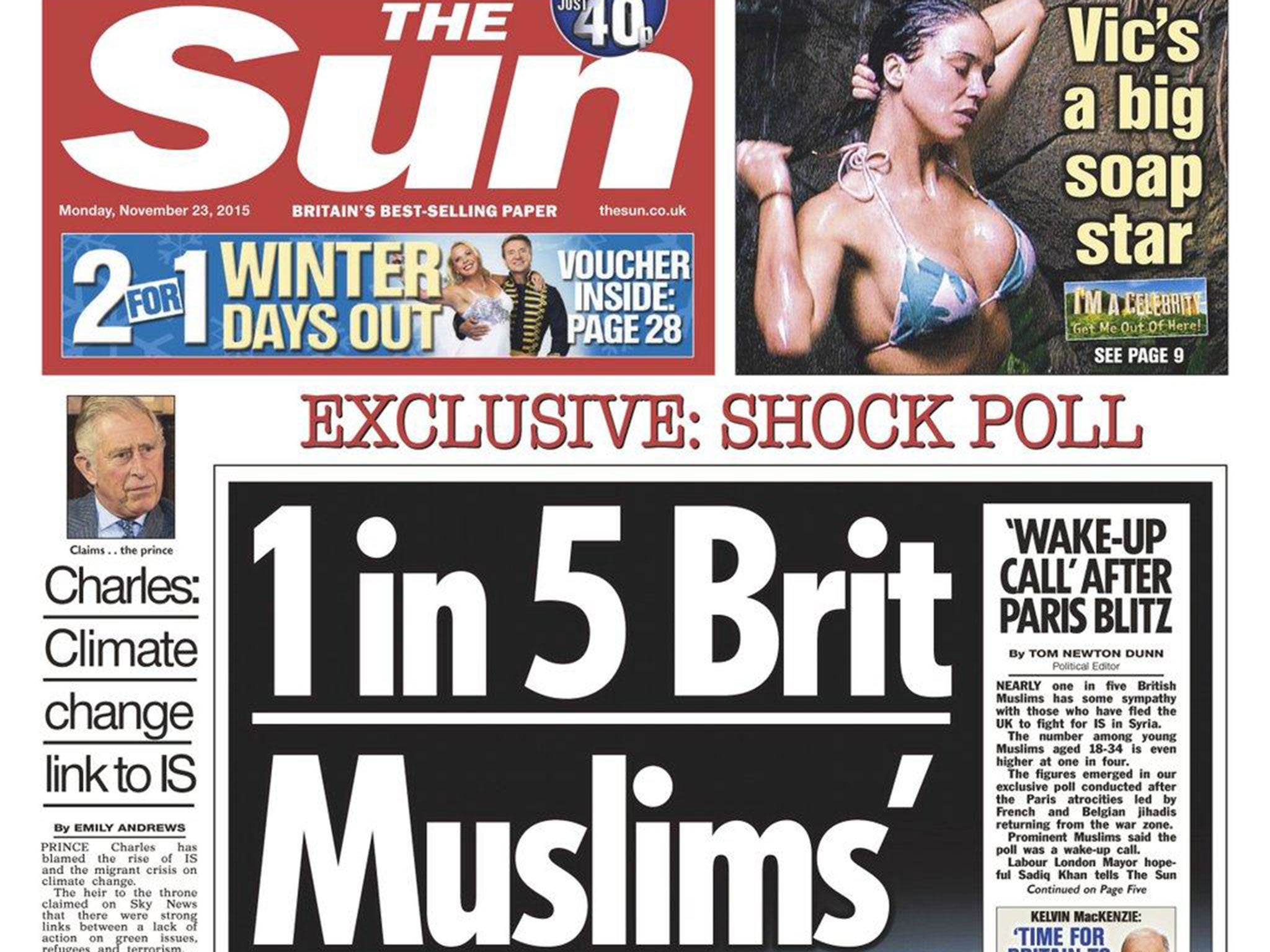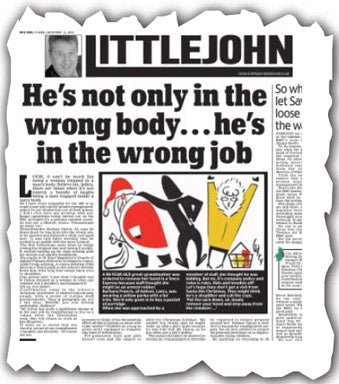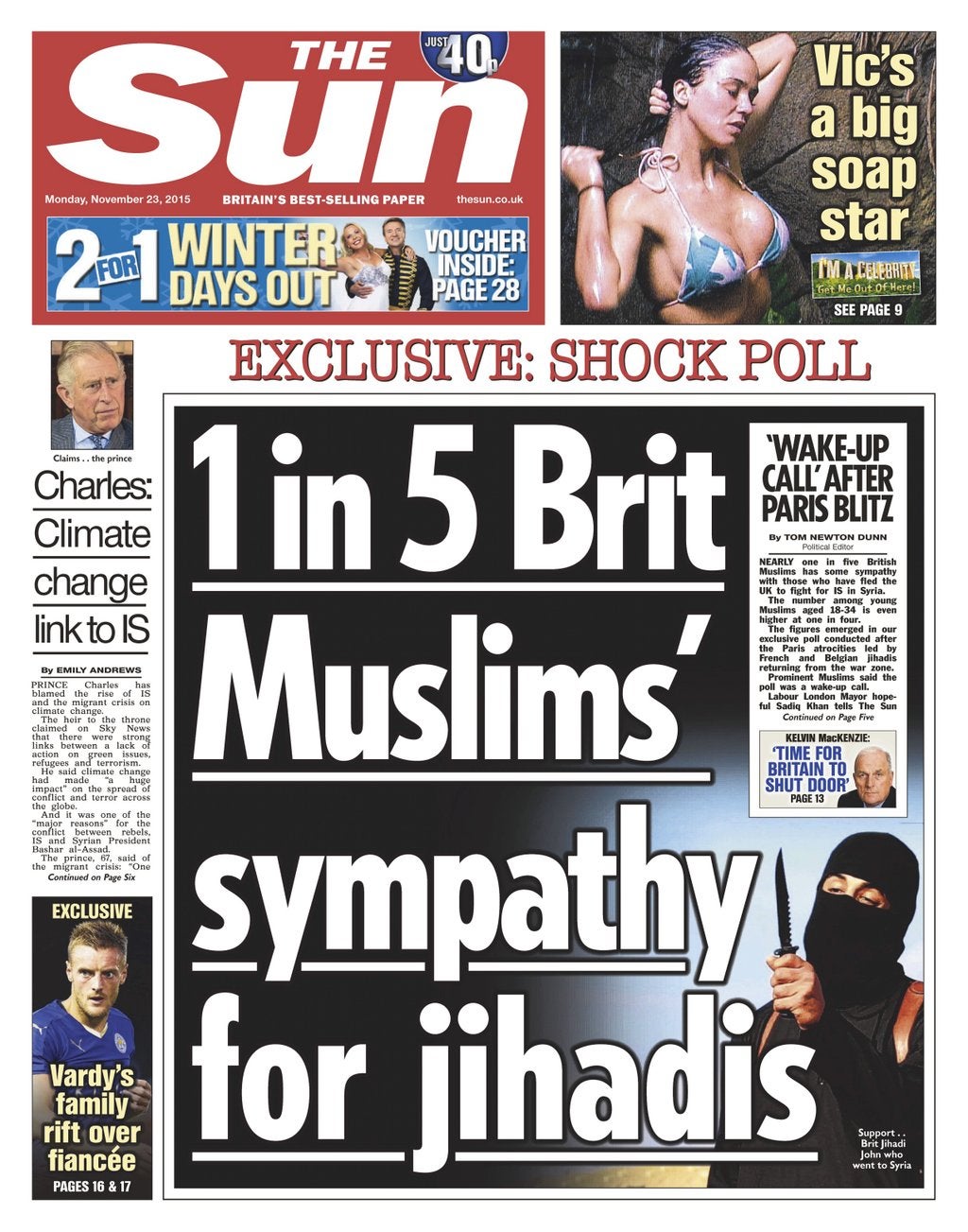The Sun and Daily Mail accused of 'fuelling prejudice' in report on rising racist violence and hate speech in UK
European Commission against Racism and Intolerance criticises 'reckless' reporting

Your support helps us to tell the story
From reproductive rights to climate change to Big Tech, The Independent is on the ground when the story is developing. Whether it's investigating the financials of Elon Musk's pro-Trump PAC or producing our latest documentary, 'The A Word', which shines a light on the American women fighting for reproductive rights, we know how important it is to parse out the facts from the messaging.
At such a critical moment in US history, we need reporters on the ground. Your donation allows us to keep sending journalists to speak to both sides of the story.
The Independent is trusted by Americans across the entire political spectrum. And unlike many other quality news outlets, we choose not to lock Americans out of our reporting and analysis with paywalls. We believe quality journalism should be available to everyone, paid for by those who can afford it.
Your support makes all the difference.The Sun and Daily Mail have been singled out in a report on “hate speech” and discrimination in the UK.
The European Commission against Racism and Intolerance (ECRI) took aim at some British media outlets, particularly tabloid newspapers, for “offensive, discriminatory and provocative terminology”.
Its report said hate speech was a serious problem, including against Roma, gypsies and travellers, as well as “unscrupulous press reporting” targeting the LGBT community.
“In March 2013, a trans schoolteacher committed suicide after being outed by the Daily Mail newspaper,” it continued.

Researchers were referring to the death of Lucy Meadows, who made no mention of press intrusion in a note left to loved ones before her death but had suffered what campaigners at Trans Media Watch called “a huge amount of monstering and harassment”.
A column published in the Mail had used photos of Ms Meadows before her transition with the headline “he's not only in the wrong body... he's in the wrong job”.
Michael Singleton, the coroner delivering the inquest verdict in May 2013, said the teacher had complained to regulators about harassment as photographers besieged her home and school, and criticised the “sensational and salacious press coverage” of the story, describing it as “ill-informed bigotry”.
The ECRI’s report also concluded that some reporting on immigration, terrorism and the refugee crisis was “contributing to creating an atmosphere of hostility and rejection”.
It cited Katie Hopkins’ infamous column in The Sun, where she likened refugees to “cockroaches” and sparked a blistering response from the UN High Commissioner for Human Rights, and the same newspaper’s debunked claim over “1 in 5 Brit Muslims’ sympathy for jihadis”.
“ECRI urges the media to take stock of the importance of responsible reporting, not only to avoid perpetuating prejudice and biased information, but also to avoid harm to targeted persons or vulnerable groups,” it concluded.

“ECRI considers that, in light of the fact that Muslims are increasingly under the spotlight as a result of recent Isis-related terrorist acts around the world, fuelling prejudice against Muslims shows a reckless disregard, not only for the dignity of the great majority of Muslims in the United Kingdom, but also for their safety.”
The report called for the establishment of a press regulator according to the recommendations set out in the Leveson Report, saying the two competing bodies currently in place were insufficient.
It also recommended more rigorous ethical training for journalist and widening a clause of the Editors’ Code of Practice on discrimination
The ECRI, which is the Council of Europe’s premiere human rights body, examines all EU member states periodically and released its UK report last week, offering 23 recommendations for change.
It also named David Cameron and Nigel Farage as among the British politicians and institutions accused of fuelling rising xenophobia in the UK as debate continues to rage over Brexit, the refugee crisis and terrorism.
It found a “number of areas of concern” over intolerant political discourse and hate speech, as well as violent racial and religious attacks.
Police statistics have shown a sharp rise in Islamophobic, antisemitic and xenophobic assaults over the past year, amid growing tensions in Britain and across Europe.
As well as attacks on religious buildings, migrants from Eastern Europe have been targeted since the vote for Brexit, including a student stabbed in the neck for speaking Polish in Telford and killing of a Polish man in Harlow.
“It is no coincidence that racist violence is on the rise in the UK at the same time as we see worrying examples of intolerance and hate speech in the newspapers, online and even among politicians,” said ECRI chair Christian Ahlund.
“The Brexit referendum seems to have led to a further rise in ‘anti-foreigner’ sentiment, making it even more important that the British authorities take the steps outlined in our report as a matter of priority.”
In a response included with the report, the Government defended its record and noted progress with a new Cohesive Communities Programme, Hate Crime Action Plan and the Anti-Muslim Hatred Working Group, but said it would not acquiesce to calls to ratify an anti-discrimination protocol of the European Convention on Human Rights.
Representatives for The Sun and Daily Mail have not yet responded to The Independent’s request for a comment.